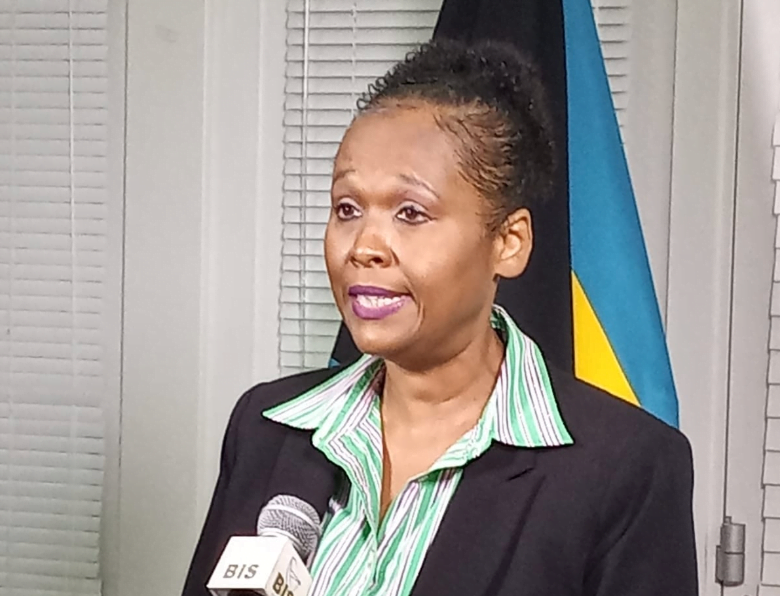NASSAU, BAHAMAS — Chief Medical Officer Dr Pearl McMillan said yesterday that restrictive measures introduced in New Providence and Abaco on October 9 to mitigate against the spread of the coronavirus has yielded a 50 percent reduction in new infections.
“The data shows encouraging signs,” McMillan said during a Ministry of Health press conference.
“…The number and trend of incidents on new COVID-19 cases remain a very important indicator that we must track.
“From a national perspective, there has been a 50 percent decrease in new COVID-19 cases, between October 10 and November 5.”
She added: “Indicator being monitored by the health team strongly suggests that the measures over the last four weeks have been working.
“They have served to decrease new cases to a more manageable level, providing some relief to our overwhelmed system and workers as well as giving us the opportunity for a rebalancing of resources.”
According to McMillan, new infections declined eight percent in the last week.
However, she said contact tracing revealed new infections have been linked to social gatherings, funerals, and parties.
She said the average of new cases had also trended downward, from an average of 108.6 per day between October 11 and October 17 to 41.1 cases per day during October 25-31.
Hospitalizations have also dropped in recent weeks.
There were 122 hospitalized cases as of October 22, compared to the 59 hospitalizations as of Thursday — a decline of over 51 percent.
There were 1,835 active cases spread across seven islands.
Cat Island and MICAL have no active cases.
A total of 4,876 cases have recovered from the virus.
This places The Bahamas’ recovery rate at 70 percent.
Total cases stand at 6,916.
Prime Minister Dr Hubert Minnis will make a national address on Sunday.
The prime minister has said as cases fluctuate, the government will tighten and ease restrictions in tandem.
Speaking to the media on Wednesday, Minnis said if cases continued to trend downward, The Bahamas could be in for a “good Christmas”.
More men dying
According to the Ministry of Health data, more men have died from the virus than women in The Bahamas.
A total of 68 women have died due to the virus, compared to 83 men.
There have been 151 confirmed deaths, an average of one death per day since the outbreak in mid-March.
Although those 50 years and older still account for the greatest proportion of deaths more younger people have died in the second wave compared to the first,” McMillan said.
Of the total deaths, 83 percent were recorded in New Providence, where the vast majority of the population resides.
“No matter how hard the healthcare professionals try, the high prevalence of comorbidities in The Bahamas continues to influence the disease course and the outcomes of the COVID-19 patients,” McMillan added.






